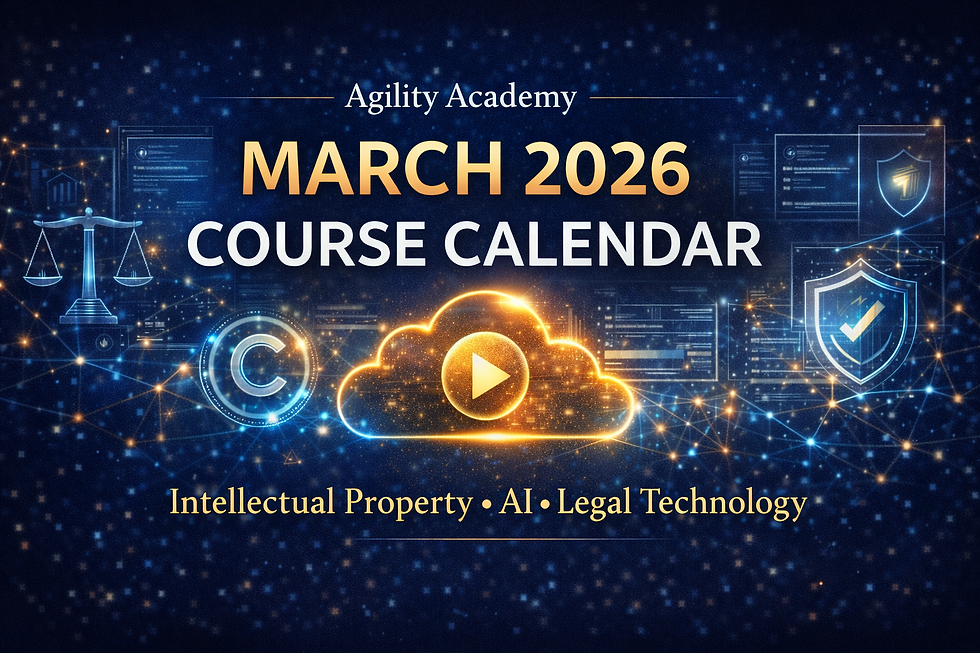From Confusion to Confidence: A Smarter Way to Learn Legal Research
- Lakisha Bealer, MBA
- Apr 13, 2025
- 5 min read
Navigating the world of legal research can often feel overwhelming, especially for newcomers. The sheer volume of resources, intricate jargon, and sometimes unclear guidelines may intimidate even the most enthusiastic learners. However, it doesn't have to remain a daunting task. With a well-planned and informed approach, you can turn that confusion into confidence. This article presents a smarter way to learn legal research, highlighting essential strategies, useful tools, and valuable resources that will empower you on your journey.
Understanding the Landscape of Legal Research
Legal research is primarily about locating relevant laws, cases, statutes, and legal precedents that relate to specific legal issues. It's essential for paralegals, solo practitioners, and legal assistants. Grasping the purpose and scope of legal research can help refine your approach and increase efficiency.
Legal research serves several key purposes:
Issue Identification: Knowing how to articulate a legal question accurately is crucial to effective research.
Identifying Legal Standards: Different cases and statutes set precedents. Understanding which to apply is vital.
Building Arguments: Research links statutes and cases to the legal question at hand, aiding in the development of persuasive arguments.
The Evolving Nature of Legal Research
Technological advancements have dramatically changed how legal research is conducted. Digital tools have altered the landscape, making research faster and more efficient. Familiarizing yourself with these tools is a must for anyone stepping into the legal field.
Embracing Technology
State-of-the-art legal databases like Westlaw and LexisNexis are transforming research practices. Consider these benefits of harnessing technology for legal research:
Speed: Complex queries can be performed within seconds, enabling a level of efficiency that traditional methods can't compete with.
Access to Extensive Information: A few clicks can yield thousands of legal documents and resources.
AI Tools: Artificial intelligence has revolutionized research processes. These tools assist in discovering relevant precedents, analyzing cases, and simplifying the research journey.
For example, researchers using AI legal tools have reported reducing their research time by as much as 60%, allowing them to focus more on applying their findings rather than searching for them.
Developing Research Skills
Effectively navigating through legal research requires a solid foundation of skills. Here are some techniques to enhance your research capabilities.
Critical Thinking
Analyzing the validity and relevance of your findings is vital. Consider these questions when assessing sources:
Does this source directly address the legal issue at hand?
Is the information current and applicable in your jurisdiction?
What is the author's or publisher's credibility?
Cultivating critical thinking will bolster your ability to analyze complex legal materials, making you a more effective researcher.
Structuring Your Research
Adopting an organized approach can enhance your research process:
Initial Question: Clearly define the legal question or issue you plan to investigate.
Keywords and Phrases: Deconstruct the question into fundamental terms, directing your search.
Source Assessment: Determine which resources are most likely to yield useful information.
Utilizing Resources Effectively
Understanding available resources is critical for efficient legal research.
Primary vs. Secondary Sources
Primary Sources: Cases, statutes, and regulations serve as the building blocks of legal research. These provide the core evidence of the law.
Secondary Sources: Legal encyclopedias, law review articles, and practice manuals deliver commentary and insights on legal issues, enhancing your understanding.
Knowing when to utilize these resources can significantly elevate your research quality. For instance, a secondary source may clarify how a primary case has been interpreted over time, which can prove invaluable during your research.
Case Law Research
Finding applicable case law at the heart of your research tasks is crucial. Platforms like Google Scholar or dedicated legal databases facilitate this process. Leveraging techniques like Shepardizing — checking the status and treatment of a case — helps ensure the law you rely on is still valid and effectively interpreted.
The Importance of Ongoing Learning
Legal research is not a one-and-done affair; it's an ongoing process. Staying updated on new legal precedents, emerging tools, and contemporary strategies is vital.
Educational Programs
Participating in programs, such as the Legal Research Power Bundle, can significantly enhance your skills. These programs often include masterclasses that cover:
Navigating legal databases effectively.
Developing critical skills for analyzing legal issues.
Utilizing AI tools for greater research efficiency.
Networking and Collaboration
Engaging with peers offers valuable insights and diverse perspectives. Consider joining legal forums, online groups, or local legal associations to share knowledge and effective strategies.
Mentorship
Finding a mentor in the legal community can provide you with practical insights. These relationships often reveal tips and tricks that traditional educational paths may overlook, giving you a real-world perspective on legal research.
Professional Development through Certification
Pursuing certifications and participating in Continuing Legal Education (CLE) courses can enhance both your credibility and understanding. Seek programs that focus on:
Advanced legal research techniques.
New technological trends in law.
Innovative tools in legal research methodologies.
For example, completing a certification course can improve your performance on the job and increase your confidence while tackling complex legal matters.
Applying Legal Research in Real Scenarios
Once you've gained knowledge and skills, applying what you've learned in real-world scenarios becomes vital. Follow these steps to bridge the gap between theory and practice:
Case Preparation
When preparing a case, your research should inform your strategies. Understanding previous rulings, like how a ruling in 2022 changed the interpretation of a specific law, can provide insights into how to approach your case.
Writing Legal Documents
Clear legal writing is paramount, whether you're drafting pleadings, briefs, or memoranda. The information gathered through research should translate into compelling legal arguments, using statistics, such as citing specific cases that support your claims.
Advocacy
Your success in presenting and arguing legal cases relies heavily on the effectiveness of your research. Being well-prepared can drastically influence your case outcomes, potentially improving success rates by as much as 30% depending on the strength of your arguments.
Tackling Challenges in Legal Research
Despite having access to resources and strategies, challenges will be inevitable. Here’s how to effectively address them:
Time Constraints
The legal profession often comes with tight deadlines. Efficient planning is key. Implementing checklists and timelines helps allocate specific periods for each research task and prevents last-minute scrambles.
Information Overload
The vast amount of data available necessitates filtering out irrelevant information. Maintain focus by honing in on key issues. If something becomes confusing, don't hesitate to clarify your questions or seek assistance from peers.
Moving Forward with Confidence
Transforming your approach to legal research can significantly enhance your professional journey. By leveraging technology, cultivating critical thinking skills, and pursuing educational resources, you can streamline your research process and boost your effectiveness in the legal field.
Committing to continuous learning and adapting to new tools ensures ongoing relevance in this evolving landscape. Remember, confusion does not have to be your companion; with the right strategies and mindset, you can confidently transition from confusion to confidence, becoming a proficient legal researcher. While the road may initially seem challenging, your dedication and the right resources will guide you toward success.



Comments